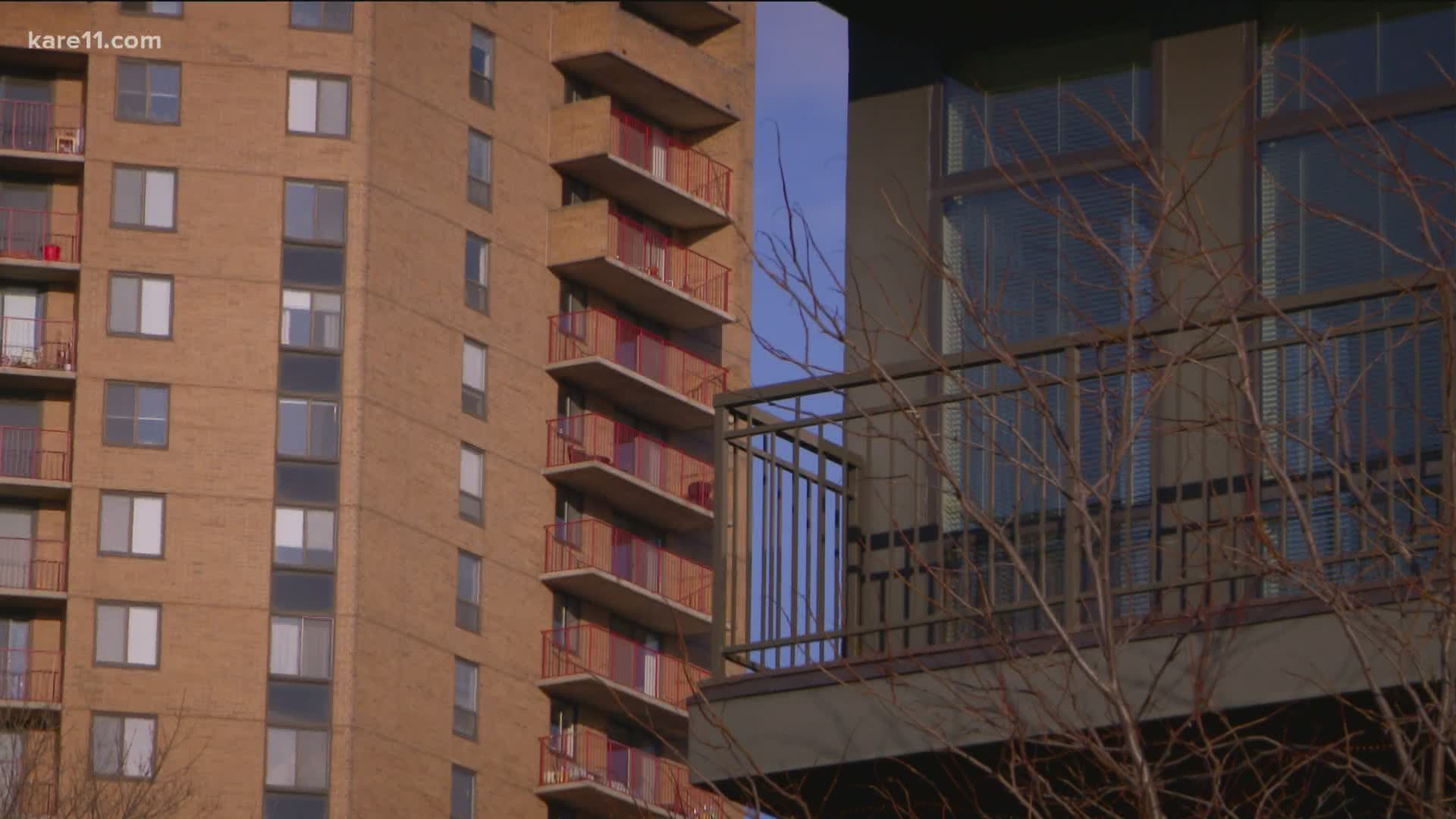MINNEAPOLIS — The thing about living in an apartment complex is that things are complex, especially with the pandemic.
"There's over 360 units in this apartment," one man said on Monday. He describes his building as a high rise in Loring Park. We are not identifying the man because he said he fears retribution from his residential property but he said when the building involves hundreds of units like his, enforcing rules is especially difficult.
"We were down on the outdoor fire pit on the sixth floor looking up--we would see dozens of people off of the balconies having parties," he described. "You could hear the music. There was a big party in the media room that management did kick people out [of]. There was probably 50 people in the common recreational area."
Where does the onus to enforce the governor's executive order of limiting social gatherings fall? On the landlord? The police? The city?
Mike Vraa, the managing attorney at Homeline, a legal help center for renters, said it's really unclear given the circumstances of the pandemic.
"As it stands, right now the landlord can really only evict the tenant if they seriously endanger others on the premises or if they cause significant property damage," Vraa said. "And then the question would be, are these parties somehow seriously endangering others?"
Vraa said technically an argument can be made saying that big gatherings within apartment complexes can be considered an act of endangerment. However, Vraa said the very executive order that Governor Walz signed to protect renters from evictions is also complicating things.
"I think there's certainly a hypothetical argument there but I'm not sure if it would be firm enough that it would win in court," he said. "Because these executive orders are designed really to make sure tenants can stay in their home."
Vraa said the best thing a troubled tenant could do is consider relocating, after having exhausted all the common-sense course of actions, like speaking to the landlord, and filing formal complaints.
"I think that tenant probably has a better argument for trying to get out of their lease if that is their goal," Vraa said. "But a tenant can also file a court case called rent escrow, where they take the landlord to court to say, 'hey judge, this landlord hasn't solved a problem for me. This place isn't safe, it's not livable,' especially if someone is in a really high-risk group."
Vraa said in terms of taking legal action, that would be the easiest.
"If the judge agrees with the tenant that's dealing with this problem, that's the easiest remedy for the judge to grant right now," he said. "They can't really make the landlord kick out the bad tenant that's throwing the big parties but they can let the tenant out [of their lease] who is living right next door to the never-ending party."

